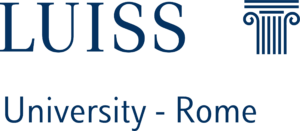42nd Annual Congress, Luiss University (Rome) June 30 – July 3, 2024
Call for Paper Proposals
Intellectual Property, Ethical Innovation and Sustainability
Towards a New Social Contract for the Digital Economy?
Setting the scene…
While Intellectual Property (IP) laws provide a framework for the innovation process, there are increasing calls demanding that innovation also respects ethical principles to balance economic with non-economic interests. Increasing concerns for the environment and the quest for sustainable development have recently prompted a general reflection at national, regional and international levels on the effects of technology, and innovation more broadly, on present and future generations and the world we are living in. Legislators have taken various initiatives to ensure that new technological developments do not undermine core values of their legal system as embedded, for example, in national constitutions and international and regional human rights documents.
Numerous regulatory interventions have been adopted or are currently being prepared in an attempt to establish an ethical digital innovation ecosystem. The calls for a human-centered framework for artificial intelligence-driven creativity or the regulation of online platforms to protect and foster, inter alia, democratic participation, freedom of expression and privacy are good examples. While corporate social responsibility has emerged as a recognized framework for the activity of businesses at global level, the necessary implications for the IP systems are so far underexplored. There is thus urgency to explore what role IP plays in the development of innovative businesses and what role it should play to take account of their social, economic and environmental impacts. In the absence of guiding regulation, courts have grappled with rebalancing a mainly economic-driven understanding of IP norms by using several concepts such as the rationales of the IP system and its basics to exclude certain activities from the control of rightholders. As a consequence, the resort to human rights has also significantly increased in recent IP litigation. General principles of law are being used to advance a holistic interpretation of IP aimed at fostering fairness, equality and/or sustainability. While such foundational arguments have been made with reference to specific sectors with strong public interest rationales, such as health, speech, education and research, other innovation areas will certainly benefit from a more thorough review of the role of IP in fostering ethical and sustainable approaches. In the online world in particular, new regulatory institutions are established to ensure that ethical principles are guaranteed in an extremely fast-moving environment, and new doctrines such as digital constitutionalism have emerged to advocate creative ways of protecting fundamental rights in the digital realm.
All these developments prompt a reevaluation of the social contract that underpins IP norms in to assess whether and how the benefits of IP protection can outweigh its disadvantages. For that purpose, it is necessary that IP rules are designed in such a manner that they benefit society at large and not only a limited group of rightholders, an aim that must include IP’s commitment to foster ethical and sustainable innovation. Revisiting established doctrines and principles that can help to recalibrate the balance between economic and non-economic interest is therefore an essential part of this re-examination of the structure and application of IP norms. Finally, it also necessitates to scrutinize the institutional framework of the IP system with a view to assess how it can contribute to promote sustainable and ethical innovation, in order -if needed- to reflect on possible modifications.
The theme of the Congress…
The central theme of this Congress is the exploration of how IP laws and their enforcement can be perceived and applied in a manner that foster ethical innovation and/or sustainability, in their broadest meaning. Particular attention will be devoted to the study of doctrines and principles that can secure non-economic values in the innovation process and a fair balance of interests within IP law. While the emphasis of the Congress will be on the online environment (in particular AI-innovation), as its legal framework is still under construction, room will be made, as part of a larger reflection, for more traditional areas of the IP economy that are also confronted with imperatives of ethical and sustainable innovation. Therefore, submissions on topics that take into account sustainability in relation to granting and enforcing IP rights, for example related to the right to repair products protected by IP rights, the impact and design of IP norms in the agricultural and craft sectors, or on the knowledge and lifestyle of local communities, are equally welcome. Finally, the organizational and institutional aspects of the regulatory frameworks will also deserve attention, inspecting the ways to ensure that it is fit to guarantee an ethical and sustainable innovation process, or if new institutional players need to emerge in the future. Comparative analyses as well as all research methodologies are most welcome; papers focusing on a purely national development will only be considered if used to serve as an illustration of an idea with theoretical or practical broader relevance.
On behalf of the Executive Committee, I invite you to submit a paper proposal on a topic related to the above call, including an abstract not exceeding 350 words, the author’s name, title, and affiliation. Please indicate below your abstract if you intend to submit your paper for publication in the edited volume that will be published after the Congress. Care will be taken in the selection process to achieve global diversity.
Proposals received from ATRIP Members with no outstanding membership fee payment will be given priority. PhD students are invited to apply for the specific ATRIP PhD call for presentations. The Congress will be held in a strictly in-person format.
Proposals should be sent no later than 30 March 2024 to ATRIP’s President, Professor Christophe Geiger, at: president@atrip.org. Notification of the outcome of the selection process will be sent End April/early May 2024.
Prof. Christophe Geiger, ATRIP President (2022-2024)


